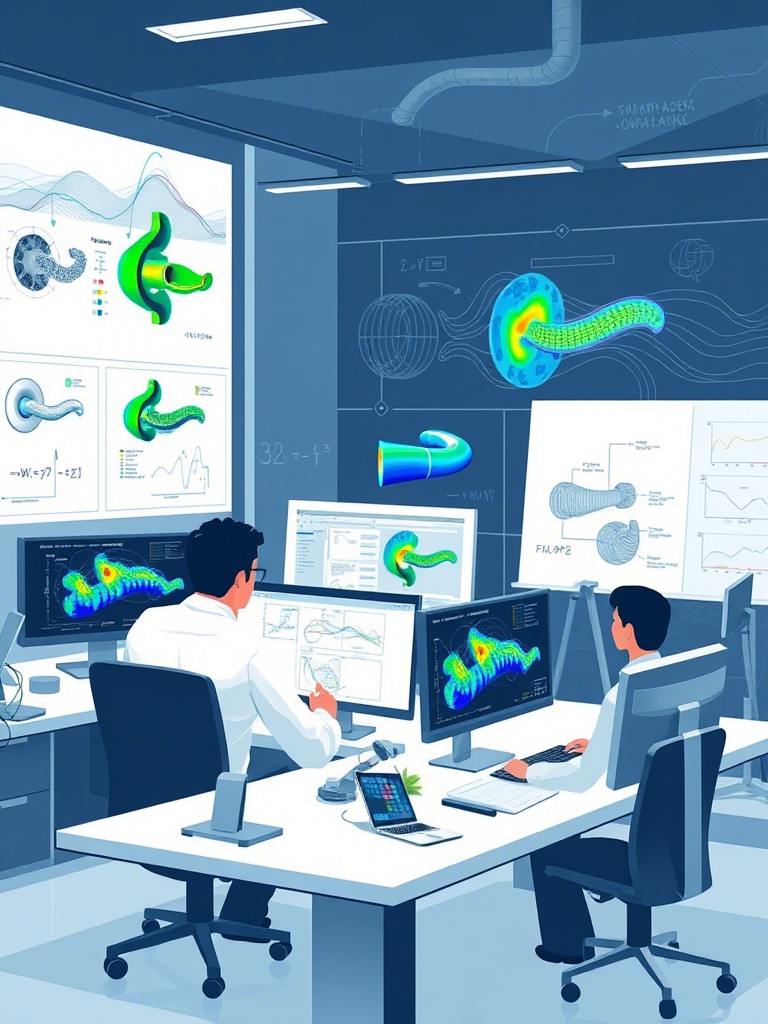Computational Fluid Dynamics (CFD)
We employ CFD analysis in a variety of applications, enhancing oil & gas engineering consultancy capabilities:
- Heat exchangers and cooling systems for industrial processes.
- Aerodynamics and hydrodynamics for vehicles, turbines, and pipelines.
- Multi-phase and turbulent flow simulations for optimized performance.
- Combustion and chemical process simulations for efficiency improvements.
- Flow Assurance Studies ensuring efficient operation of complex piping and pressure systems.
- HVAC System Design Optimization to enhance energy efficiency in industrial environments.


What is Computational Fluid Dynamics?

Call For a Quote:
+44(0)7550680067
F.A.Q.
What are the key benefits of CFD analysis?
-
Cost Savings: Reduces reliance on physical prototypes.
-
Speed: Accelerates design iterations and troubleshooting.
-
Insight: Visualizes complex flow patterns (e.g., vortices, thermal gradients).
-
Safety: Simulates extreme conditions (e.g., high temperatures, chemical reactions) without risk.
Which industries use CFD simulations?
CFD is critical in:
-
Aerospace (aircraft aerodynamics, combustion analysis).
-
Automotive (vehicle drag reduction, battery cooling).
-
HVAC (ventilation system design).
-
Oil & Gas (pipeline flow optimization).
-
Renewable Energy (wind turbine performance).
What software do you use for CFD simulations?
e leverage industry-leading tools like ANSYS Fluent, COMSOL Multiphysics, OpenFOAM, and STAR-CCM+ for accurate modeling of laminar/turbulent flow, multiphase systems, and heat exchangers.